Does bad weather affect the internet? Bad weather can theoretically affect any internet connection type, but some connections are more susceptible to different weather conditions than others.
Extreme weather might seem a non-issue because it doesn’t occur daily, but the downtimes can significantly impact your business or entertainment. So when looking for a new internet provider or an upgrade in your internet plan, you need to know which severe weather events can slow down your speeds or keep you offline.
We will answer the question “does bad weather affect the internet” by looking at typical internet connections. Let’s get started!
Table of Contents
- Typical Internet Connections
- Does Bad Weather Affect The Internet
- How To Troubleshoot Poor Internet Connections During Poor Weather
- Wrap Up
Typical Internet Connections
An internet connection can pass through different physical or wireless links before getting to your home or office. These connections can be either of the following.
- Dial-up
- DSL
- Cellular
- Fixed Wireless
- Satellite
- Cable
- Fiber optic
The typical path in all connections is from an application server to an ISP tier 1, then to the interconnected ISP tier 1 core network. This interconnection is the backbone of the internet. The data then goes to the ISP tier 2 network, which connects to your local area network.
Does Bad Weather Affect The Internet
Bad weather can affect the internet in different ways during transmission, depending on the internet connection. Some are more affected than others, so we will analyze them differently to see how they perform under pressure.
How Does Weather Affect DSL Internet?
DSL (Digital Subscriber Line) transmits internet data over the two-wire copper telephone lines that connect your home to the landline. ADSL (Asymmetric Digital Subscriber Line) is a variation of DSL that uses the same copper lines for data transmission but has faster download and slower upload speeds. DSL balances the two.
The grounded copper wiring used for DSL internet usually has a hard-plastic double coating for protection against weather elements. And some travel deep in the ground. So rain, snow, or wind should not affect your internet speeds.

A broadband modem with a telephone cable plugged in for DSL internet
In most cases, the secondary effects of weather affect DSL more than the extreme weather itself. For instance, Heavy storms or winds can uproot grounded wires or knock down telephone lines, causing the cables to snap. So you can experience slow internet or complete service interruptions during such conditions.
Sunlight does not affect DSL internet, but heat waves can affect the transmission lines and hardware by causing physical damage. Components in the networking devices operate optimally below certain temperatures and can begin failing when heat waves drastically increase the ambient temperature.
How Does Weather Affect Cellular and Fixed-Wireless Internet?
Wireless internet from Wi-Fi, fixed-wireless, and cellular networks are more affected by weather because the transmission media (radio waves) go through the atmosphere.
Rain and other forms of precipitation can absorb radio signals, a phenomenon known as rain fade. So some waves coming from the fixed wireless or cell phone towers will get lost. Water droplets, snow, and fog can also scatter the signal, resulting in slower speeds.
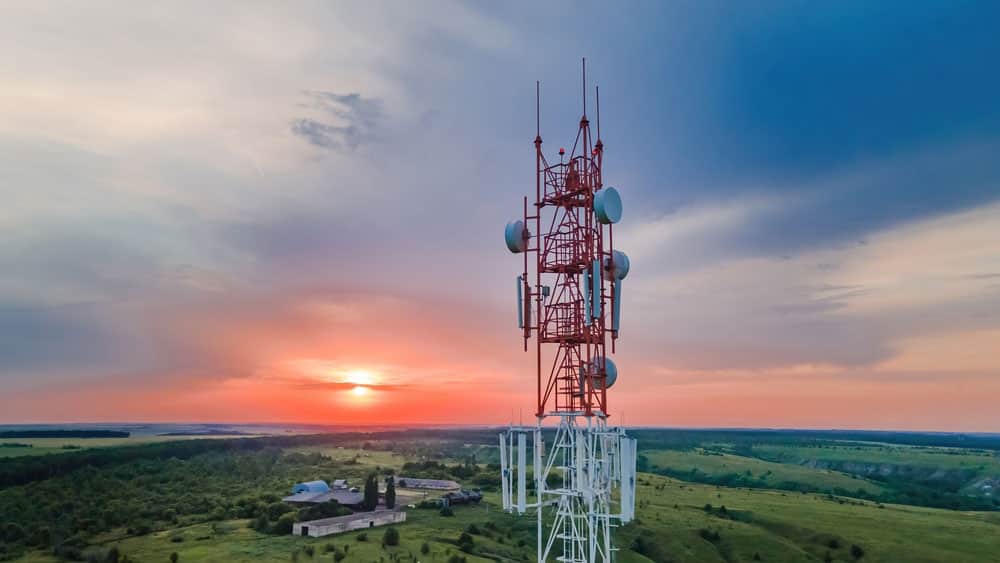
A cell phone tower for providing cellular and fixed-wireless internet
Humidity has the same effect on wireless signals because water is the densest substance in the atmosphere. So high humidity can reduce wireless internet speeds.
Sunlight does not affect wireless networks, but extreme heat can affect the electronic equipment providing this wireless service, resulting in slow internet speeds.
How Does Weather Affect Satellite Internet?
Satellite internet services are the most affected by extreme weather events because satellite signals travel hundreds or thousands of miles to and from the receiver. Cell Phones and fixed-wireless internet signals only travel about ten miles or less, so you’ll most likely experience slow speeds.
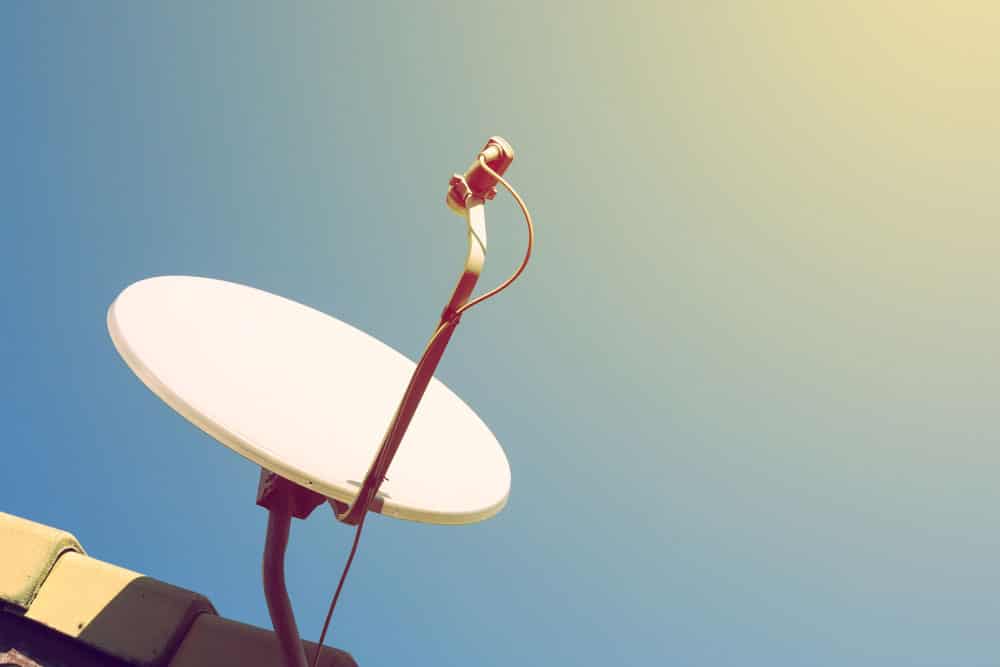
A satellite dish
Using Starlink as an example, the company’s satellites orbit 342 miles above the earth, which leaves a wide gap for the satellite signal radio waves to travel. So when it rains, the water column will be massive. These elements can lead to a disruption of service if you add a thick cloud cover.
And keep in mind Starlink satellites are in low earth orbit. Satellites for the HughesNet satellites orbit 22,000 miles above the earth, while Viasat satellites hover 22,236 miles above the surface. So their signal strength will be lower than that of Starlink, hence more affected by bad weather.
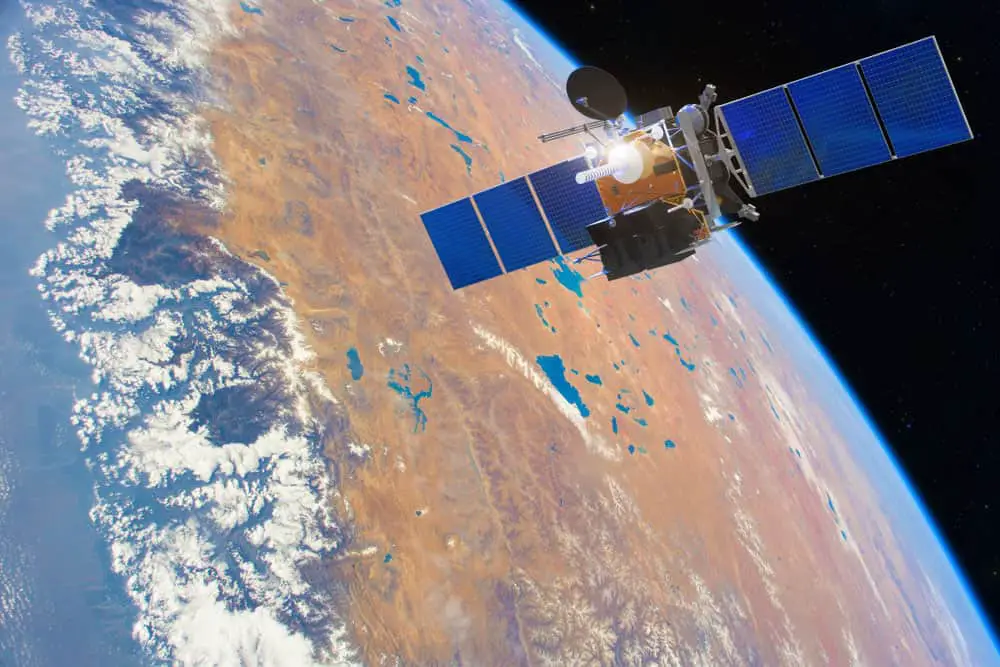
A communication satellite in low earth orbit
That’s just the signal part. Satellite internet relies on antennas or dishes to transmit and receive radio waves. Strong winds cannot affect these signals but can sway, flex, or move the antennas out of position.
Also, ice and snow can bog down the devices by depositing a thick obstructive white layer above the antenna. The frozen moisture can block the radio waves, resulting in slower connection speeds.
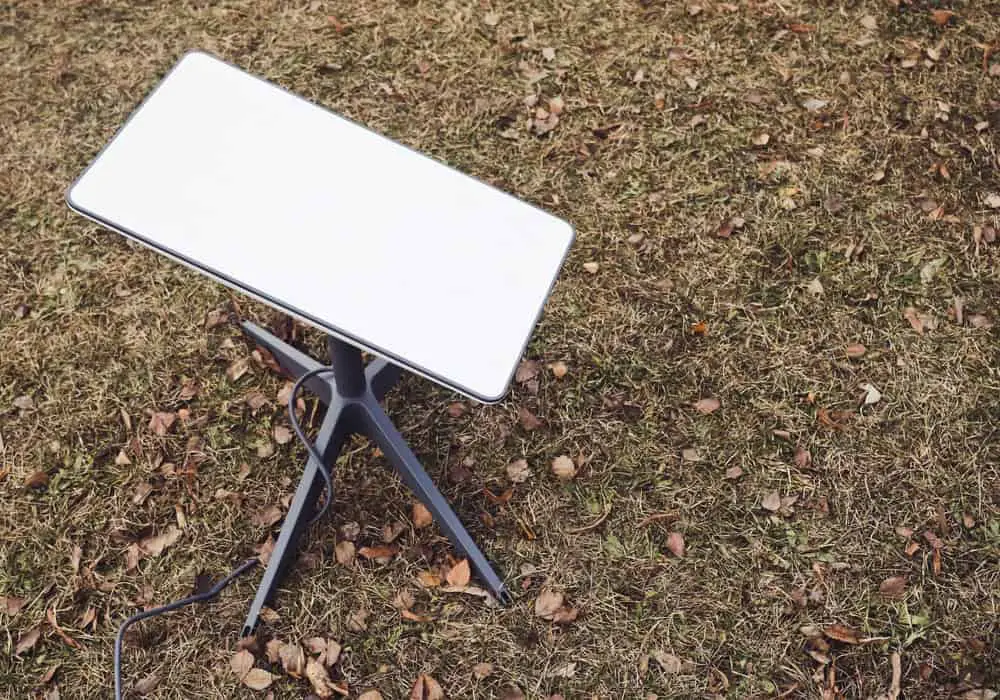
A Starlink dish
But Starlink satellite dishes have a self-heating feature, so this might not be an issue when using the internet provider’s services. However, heating increases power consumption, which can drain your batteries if you live off the grid.
How Does Weather Affect Cable Internet?
Cable internet is a form of broadband internet that transmits packet data through cable TV lines (coaxial cables). Like the copper phone lines used for DSL internet, coaxial cables are more resilient to weather conditions.
These wires have sturdy outer jackets that can withstand corrosion and the elements to protect the cable lines inside. So wind, snow, and rain will not affect the wired connection.
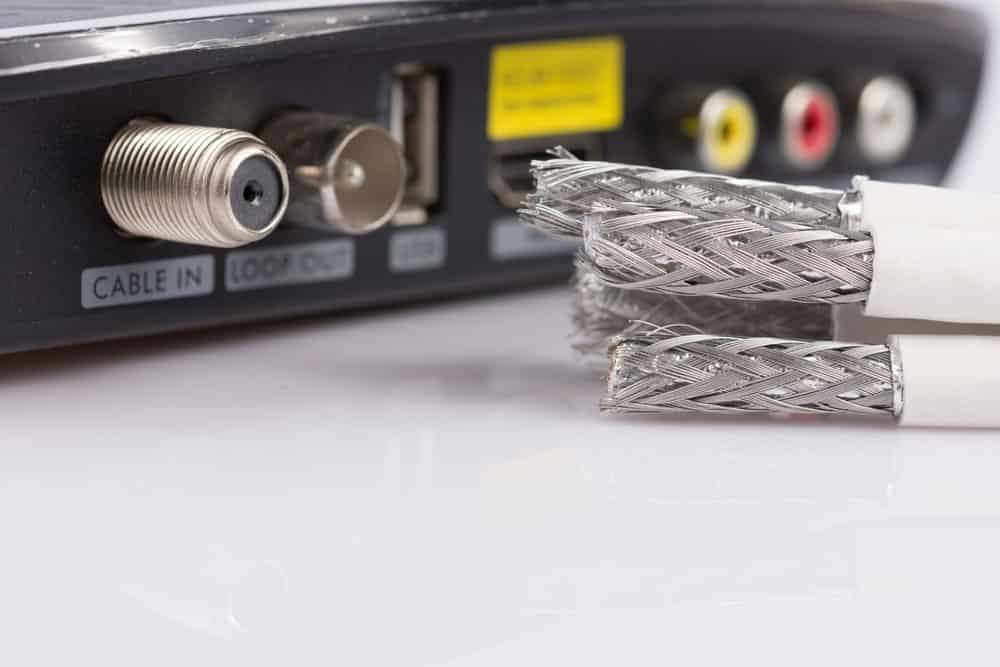
Coaxial cables for digital TV and cable internet
However, strong winds and heavy storms can uproot the cables or knock down electrical wires. Such events can lead to slow speeds due to power outages or broken lines.
And like the other connections, extreme heat can damage the hardware supporting the cable internet.
How Does Weather Affect Fiber Internet?
Fiber optic cables transmit data as light pulses. So they provide the fastest internet speeds and are the least susceptible to external factors, including electromagnetic interference.

A fiber optic cable connected to a router
Fiber internet relies on optical fibers buried 3-4 feet underground, which places them safely away from the elements. So storms, winds, and snow will not affect your service. But the cable might travel along power lines in some connections like FTTH (Fiber To The Home). Therefore, strong winds or storms can uproot the poles, cut the fiber, and interrupt the service.
How To Troubleshoot Poor Internet Connections During Poor Weather
If your internet starts acting up during severe weather, check for reported internet outages first to determine whether the problem is local or covers a wide area.

A person experiencing frustrations due to an internet outage
In most cases, your cell phone’s internet will be working. So go to your provider’s website, check their Twitter page, or call the customer service number to find out more. If you can’t get a cell phone signal, it could be due to a widespread outage.
But if the issue is local, check your router, satellite dish, and other internet devices.
Quick Tips and Fixes To Improve Connection During Severe Weather
If the internet outage is due to a local issue, you can fix it using these quick tips.
- Turn your modem, router, dish, and other hardware off, then on to reboot the systems.

An internet modem/router combo
- Reduce the number of devices connected to the network
- Move the router to a central area in your home (this tip does not apply if you have a mesh or cabled setup)
- Consider installing a dehumidifier if your home is super humid
Wrap Up
In conclusion, bad weather can affect the internet, but in different ways. Rain, snow, fog, humidity, and other moisture-related conditions affect wireless internet connections the most.
But wired connections are more resilient and only get affected by the secondary effects of adverse weather events that uproot or damage the internet infrastructure. So you’ll be better off using fiber or cable internet over satellite or wireless internet if you live in an area that rains or snows a lot.
That’s it for this article. Drop a comment below if you have experienced internet outages due to weather events, and let us know if we left something out. Cheers!
